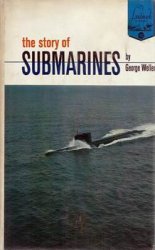Along with the Espionage Act and the Immigration Act of 1917, the Trading with the Enemy Act solidified the anti-immigrant and antiradical sentiments that the federal government came to embrace during the early part of the 20th century. When war erupted in Europe in 1914, the public response in the United States was divided. Diverse political and ethnic identities contributed to the debate regarding the war in Europe. Anticipating that the United States would enter the war on the side of the Allies (principally, Britain, France, Italy, and Russia), the administration of President WoODROW WiLSON initiated programs aimed at strengthening a sense of patriotism and national unity. Its efforts culminated in increasingly systematic efforts at the Americanization of immigrants, especially emigrants from Germany and its allies. By 1914, German immigrants still formed the largest foreign-born group, 2.3 million, of the population. In addition, there were more than 2 million emigrants from the various parts of the Austro-Hungarian Empire.
Throughout his first term as president, Woodrow Wilson expressed a concern about the large immigrant population and frequently referred to the need for national loyalty, especially after the United States declared war on Germany in April 1917. Within this context of heightened patriotism, the Trading with the Enemy Act sought to reinforce American nationalism and to garner unity for America’s involvement in World War I. Despite Woodrow Wilson’s public image as a supporter of democratic rights (e. g., his Fourteen Points speech), the federal government during the war came to rely on repression to achieve domestic unity and support for the war. Specifically, under Wilson’s direction, the Congress passed the Trading with the Enemy Act as an effort to control all international trade and communications. The act provided for the seizure and operation of property in the United States owned by Germans and by enemy aliens (emigrants from Germany, Austria-Hungary, Turkey) and for the control of German assets, which came under the authority of the Alien Property Custodian, A. Mitchell Palmer. He obtained additional authority to operate German-owned factories and licensed German patents to American industrial firms. Patents for dyes and chemicals were particularly important for the war effort and helped to further develop the chemical industry in the United States after the war.
Communications during the war were another area of control. The Trading with the Enemy Act prohibited the publication of news and editorial matter that was critical of the U. S. government, military conscription, or the war effort. Section 19 of the act also required foreign-language publications to submit their war-related stories to a post office censor for approval. When censors at the post office deemed a publication to be unsuitable because of its critical stance on the war, that publication ran the risk of losing its second-class mailing privileges, making it extremely difficult to distribute and, subsequently, publish. Accordingly, the Trading with the Enemy Act became a further means for the federal government effectively to quiet voices of dissent. Members of two of the leading organizations opposed to America’s involvement in the war, the Socialist Party and the INDUSTRIAL Workers of the World, faced arrest and found that circulation of their publications was extremely difficult, as censors at the Post Office objected to their antiwar positions. It broadly denied mailing privileges to other radical publications, including The Masses, International Socialist Review, American Socialist, the Appeal to Reason, and the Milwaukee Leader For many radical and foreign-language publications, exclusion from the mails was the death knell of the free press. Many closed their doors, unable to meet either the cost of publication or to accept the silence of censorship.
Further reading: David M. Kennedy, Over Here: The First World War and American Society (New York: Oxford University Press, 1980).
—David R. Smith
Treaty of Versailles See Versailles, Treaty of.




 World History
World History









